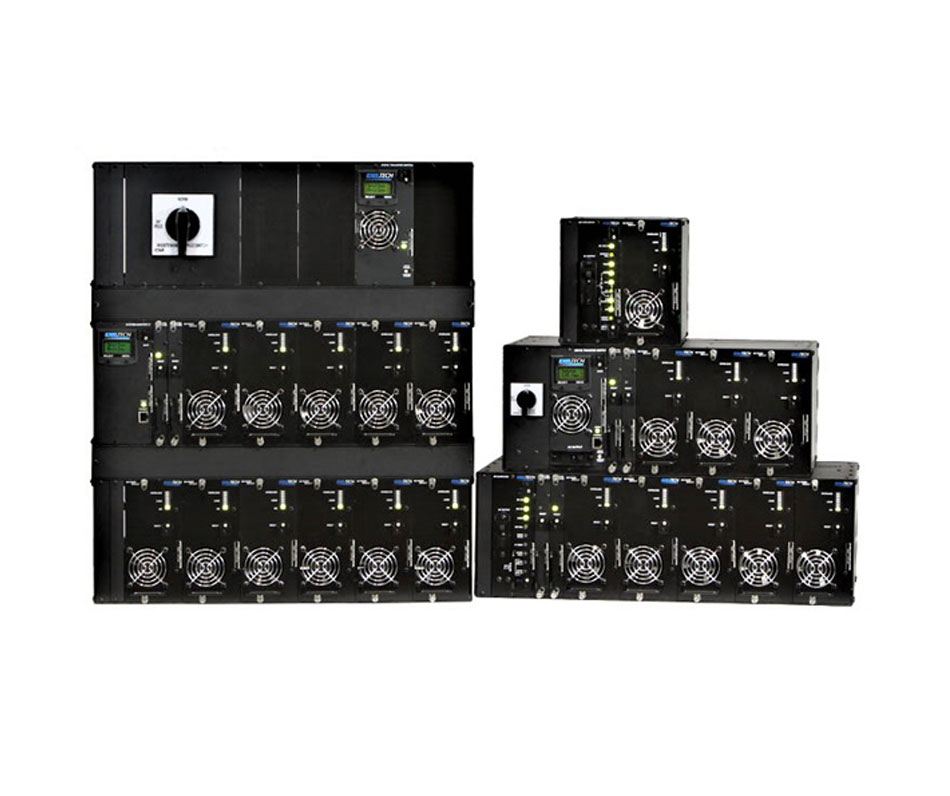Supermarkets are a part of our daily lives, providing fresh produce, groceries, and other household items. However, they consume a significant amount of energy, resulting in a substantial carbon footprint.
As the world becomes increasingly aware of the need for sustainability and environmental conservation, it is crucial for businesses, including supermarkets, to adopt eco-friendly practices.
One area supermarkets can significantly impact is utilizing modular inverters to reduce their carbon footprint.
Carbon Footprint Challenge
Supermarkets require substantial energy for operation, including powering refrigeration units, lighting, air conditioning, and other equipment. These energy requirements result in a significant carbon footprint due to fossil fuels, which emit greenhouse gases into the atmosphere.
According to a survey, commercial and residential buildings account for 39% of total carbon emissions in the United States. And supermarkets significantly contribute to this figure.
How Can Modular Inverters Help Reduce the Carbon Footprint of Supermarkets?
Traditionally, these markets use centralized inverters to convert the direct current (DC) electricity of solar panels or stored in batteries into alternating (AC) electricity to power the building.
However, these centralized inverters have limitations in terms of efficiency and flexibility, which can impact the sustainability of the supermarket’s operations.
This is where industrial power inverters come into play. These inverters are a newer technology that offers several advantages over traditional centralized inverters.
Efficiency
These inverters use advanced electronics and software algorithms to optimize the conversion of DC to AC electricity, resulting in higher overall system efficiency. It reduces the need for additional energy from the grid, lowering carbon emissions.
Greater flexibility
Traditional centralized inverters have a fixed capacity and can handle a specific load. It results in inefficient operation if the load varies, such as during low or high demand.
In contrast, modular inverters are scalable, allowing supermarkets to add or remove modules as needed to match their changing energy requirements. This flexibility enables the markets to optimize their energy usage and avoid overloading their inverters, leading to energy waste.
Resilience
Supermarkets operate in a competitive environment where downtime can result in significant financial losses.
Traditional centralized inverters are vulnerable to single-point failures, which can result in complete system shutdown and disruption to the supermarket’s operations.
In contrast, industrial power inverters contain redundant modules and advanced monitoring capabilities for fault detection and self-healing. So, if one module fails, the other modules continue operating, ensuring an uninterrupted power supply and minimizing downtime.
Size adjustment
These inverters can facilitate demand-side management in supermarkets.
Demand-side management refers to optimizing the timing and level of energy consumption. It is configured to align with the availability of renewable energy generation or to take advantage of lower electricity prices during off-peak hours.
You can integrate these industrial power inverters with energy management systems. These systems monitor electricity prices, renewable energy generation, and demand patterns in real-time.
This facility enables supermarkets to shift their energy consumption to periods of lower demand or higher renewable energy generation. This thus reduces, their reliance on fossil fuel-based electricity and carbon footprint.
Grid services
These inverters also enable supermarkets to participate in grid services.
Grid services refer to services that support the stability and reliability of the electrical grid, such as frequency regulation and demand response.
Since these inverters are programmed to provide grid services, supermarkets can also use it to generate additional revenue. They do it by supplying excess electricity to the grid during high demand or frequency deviations.
It thus helps supermarkets offset their energy costs and support integrating renewable energy into the grid. This is critical for achieving a more sustainable energy system.
Thus, modular inverters are a game-changer regarding sustainability in supermarkets. They are flexible, scalable, and efficient in meeting the energy requirements of supermarkets without oversizing or energy wastage.
But if you are in a dilemma about where to get your inverter, visit Exeltech; it offers the finest quality inverters in the market!





